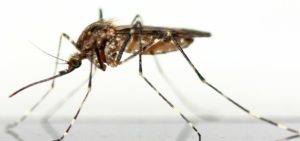With the U.S. mosquito season right around the corner, many in the United States are concerned about the Zika Virus. U.S. experts are preparing for the potential of Zika Virus outbreaks this summer.
What is the Zika Virus?
The Zika Virus is a mosquito-borne virus that was first identified in [1]1947 in rhesus monkeys. The first known instance of the virus in humans was reported in 1952. Outbreaks have been reported in Africa, Uganda, the Americas, Asia and the Pacific.
 The most common symptoms include:
The most common symptoms include:
- fever,
- skin rashes,
- conjunctivitis,
- muscle pain
- joint pain,
- malaise,
- headache
Typically, the illness is mild and lasts only a few days, however recent outbreaks have caused health officials to report potential neurological and auto-immune complications associated with the Zika virus.
The [1]World Health Organization reports that…
“…recently in Brazil, local health authorities have observed an increase in Guillain-Barré syndrome which coincided with Zika virus infections in the general public, as well as an increase in babies born with microcephaly in northeast Brazil. Agencies investigating the Zika outbreaks are finding an increasing body of evidence about the link between Zika virus and microcephaly. However, more investigation is needed to better understand the relationship between microcephaly in babies and the Zika virus. Other potential causes are also being investigated.”
What U.S. Cities Might be Hit With the Zika Virus this Summer?
The virus is spread to people through the bite of an infected mosquito. There have also been 2 cases of sexual transmission of the Zika reported and 1 case where the virus was found present in semen.
[2]While no locally transmitted Zika cases have been reported in the continental United States, cases have been reported in travelers returning to the U.S. However, experts are concerned that may change based on a prediction for warmer temperatures this summer. Computer models are anticipating mosquitos carrying the Zika virus as far north as New York City and as far west as LA. According to a recent article on WebMD:
“While there is much we still don’t know about the dynamics of Zika virus transmission, understanding where the Aedes aegypti mosquito can survive in the U.S. and how its abundance fluctuates seasonally may help guide mosquito-control efforts and public health preparedness,” – WebMD [3]
There is currently no vaccine to protect against or treat the virus however there are steps that can be taken to reduce the threat.
Breeding Grounds
Since mosquito breeding sites pose a significant risk factor for Zika, removal and disruption of them is a good strategy. Fewer mosquitoes reduces the potential for contact with people. Here are some simple things you can do to disrupt breeding sites in your area:
- Empty, clean and cover any containers used to store water;
- Clean or remove other common mosquito breeding sites like flower pots, old tires and roof gutters;
- Support community efforts to reduce mosquito populations.
Personal Protection
Your best personal protection includes wearing long sleeves, pants and using insect repellent. It’s also important to provide help to those who may not be able to protect themselves adequately such as small children and the elderly. Take extra precautions and be vigilant if you are traveling, especially into areas known to have mosquitoes likely carrying the Virus.
For more information on the Zika Virus visit the World Health Organization and /or Web MD on line.
References
- World Health Organization <http://www.who.int/mediacentre/factsheets/zika/en/>
- Maine.Gov <http://www.maine.gov/dhhs/mecdc/infectious-disease/epi/vector-borne/zika/index.shtml>
- WebMD <http://www.webmd.com/news/20160317/scientists-pick-us-cities-where-zika-might-hit-this-summer>




